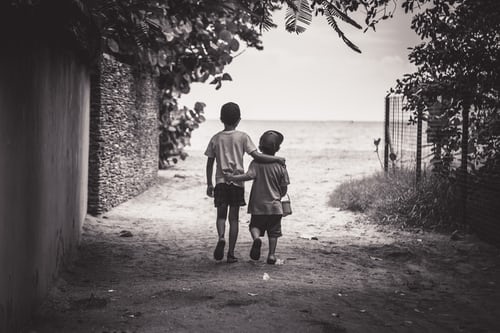It is reported that around two-thirds of children will experience at least one traumatic, or adverse event by the time they turn 16. Childhood and adolescence is a time where children need to feel safe, nurtured and loved by their carers to be able to healthily develop into adulthood with a secure base, positive coping strategies and emotionally regulated. However, it is often the child’s primary caregivers, other relatives or people in positions of authority that engage in behaviours that result in interpersonal trauma, including abuse, neglect, exploitation, betrayal and abandonment, being inflicted on the child that disrupts their normal development. Childhood trauma can also be indirect, such as watching a loved one suffer or exposure to family violence.
Whether it’s a complex trauma – exposure to multiple traumatic events, often invasive and interpersonal such as abuse, neglect or family violence, or an isolated event – such as a car crash, illness or death of a loved one, many children will start to experience and display strong feelings of fear, anger, sadness or guilt. A child’s reaction to a traumatic experience can often be labelled and misunderstood as ‘naughty’ behaviour, however, their experience of the event can potentially lead the child to form negative beliefs about themselves and may then continually respond to others as a threat. The child’s adaptive behaviour has now become one of survival, even though the trauma may have stopped. This may be demonstrated as aggressiveness, verbal or physical abuse to others or absconding.
The child may continue to develop and display feelings of distress as they relive the traumatic experience. Children may exhibit emotional and behavioural warning signs after a traumatic event including:
- Anger and aggression
- Anxiety
- Difficulty trusting others
- Fear
- Poor self-esteem
- Self-destructive behaviour
- Sleep issues
- Attention problems
- Changes in appetite
It’s important to recognise when your child may need professional support to help heal from trauma. Early intervention may even prevent your child from experiencing the ongoing effects of the trauma as an adult. At the Australian Trauma Support Centre, we specialise in supporting people affected by trauma and have extensive experience working with children who have experienced trauma. We can help support you and your child through this and provide ways to assist you with the emotional trauma experienced. If you are finding yourself struggling to cope after a traumatic event, please get in contact with us, your GP.


